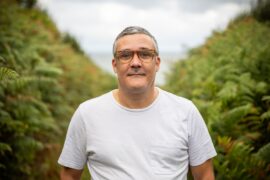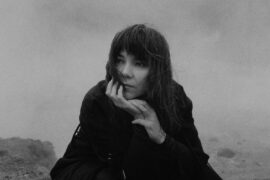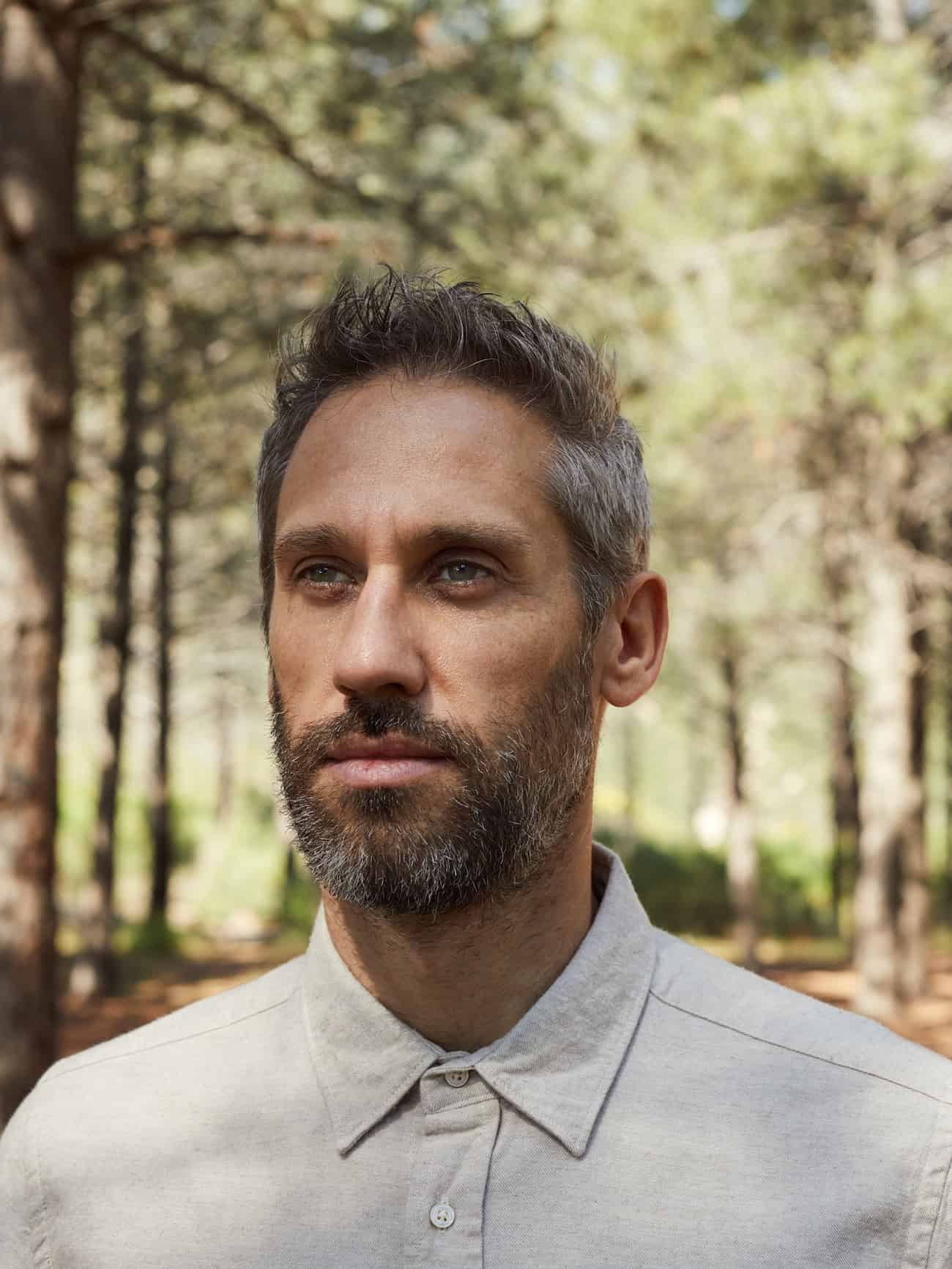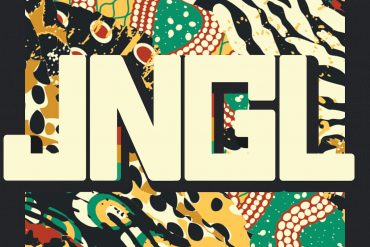Liverpool alternative rock band The Mysterines join Atwood Magazine for an intimate, in-depth conversation about the raw vulnerability and musical evolution that spawned their seductive, soul-stirring sophomore album ‘Afraid of Tomorrows’ – an emotionally charged, breathtakingly bold fever dream that captures the warmth, the weight, and the endless ache of our fragile human experience.
Stream: ‘Afraid of Tomorrows’ – The Mysterines
Won’t someone please stick these pins in my eyes and begin to sow them straight up for me? I’m so afraid of tomorrows…
There’s a dark edge to The Mysterines’ sophomore album that, quite frankly, makes it all the more seductive.
An unapologetically intense alt-rock fever dream, Afraid of Tomorrows is roaring, raging, and relentless in its pursuit of soul-stirring sound and emotional self-expression. Released in June via Fiction Records, the follow-up to 2022’s critically acclaimed debut LP Reeling (one of that year’s best releases) sees the Liverpool four-piece of Lia Metcalfe, George Favager, Callum Thompson, and Paul Crilly expanding their sonic palette into both lighter and heavier territories, whilst further homing their collective artistic vision for what The Mysterines can be – and what The Mysterines make.
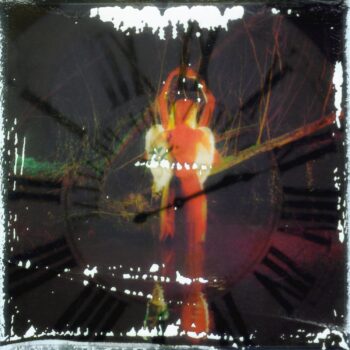
Why don’t you
Just let the light in
I’ve been waiting
So long, I’ve become a stranger
Haunting
I didn’t find you
Where I thought you’d be
But just as I found you
The matchbox was shut on me
– “Inside a Matchbox,” The Mysterines
Whereas LP 1 captured “life’s chaos and inner turmoil with raw intensity, bold flavors, and soul-stirring candor,” LP 2 delivers “a collage of what’s been lost and of love unbounded” (per Lia Metcalfe) through a series of vivid and brash reckonings (“Stray,” “Sink Ya Teeth,” “The Last Dance”) and moody, brooding, all-consuming eruptions (“Jesse You’re a Superstar,” “Another Another Another,” “Tired Animal”). At the core of so many of these songs lies trauma, and like the ‘original sin,’ it is at once inescapable, indelible, and unforgiving: A permanent scar on the heart and soul that can only be eased through musical release.
“It was important for us to keep an almost unfinished, unpolished nature to it because I think that just kind of conveys a lot more,” Lia Metcalfe tells Atwood Magazine. “We discovered that with Reeling, we didn’t really want to overpower people’s ears and stuff. It’s the moments of silence and stillness that have the heaviest weight, really, and that’s something we always kind of kept in the back of our minds while we were writing.”
“I suppose the best way to put it is that I was in a very, very vulnerable place when writing the record, and felt almost pretty lost in a way,” she adds in relation to the album’s lyrics and themes. “I found that writing the record was a way to discover what was happening internally and figure out how to deal with that externally. It was a scary process, the writing part, because I would often scare myself into what I was writing or saying. That’s why there’s lots of themes of paranoia throughout the record – the songs at one point almost felt quite haunted to me. They kind of felt like mini ghosts. I think I lost myself a lot in the world of the record, so much so that I kind of became it.”
“It was almost a bit like Alice falling down the rabbit hole or something.”
Head in a web, just left spinnin’ around
Back in your bed, hangin’ upside down
Your dirty sheets, your kerosene kiss
I strike a match to get out of it
You drag me back for the fun of it
For the fun of it
Oh, I tried so hard
But you make me bored
Sink your teeth in deeper
Ultimately, it’s this breathtaking marriage of musical intensity and emotional vulnerability that makes Afraid of Tomorrows so irresistible and undeniable.
The Mysterines wear their battle scars like plates of armor, channeling pain into passion, fury into fire, and torment into tempestuous, tantalizing sound. Charged and churning, the band’s second album is a beautiful, if not brutally honest and bittersweet marriage of inward emotional catharsis and external connection that captures the warmth, the weight, and the endless ache of our fragile human experience.
You may come away from this album with a weightless sense of healing and resolve; you may come away from it feeling heavier than ever. But no matter what, The Mysterines will move you – and what more can you ask for, especially from such a hard-hitting album?
Atwood Magazine recently caught up with Lia Metcalfe, Paul Crilly, and Callum Thompson for an intimate and in-depth conversation about The Mysterines’ spellbinding sophomore album. Dive into Afraid of Tomorrows in our interview below as the band unpack the emotional vulnerability, the sonic evolution, and all-around “radical transformation” that went into bringing their new music to life.
— —
:: stream/purchase Afraid of Tomorrows here ::
:: connect with The Mysterines here ::
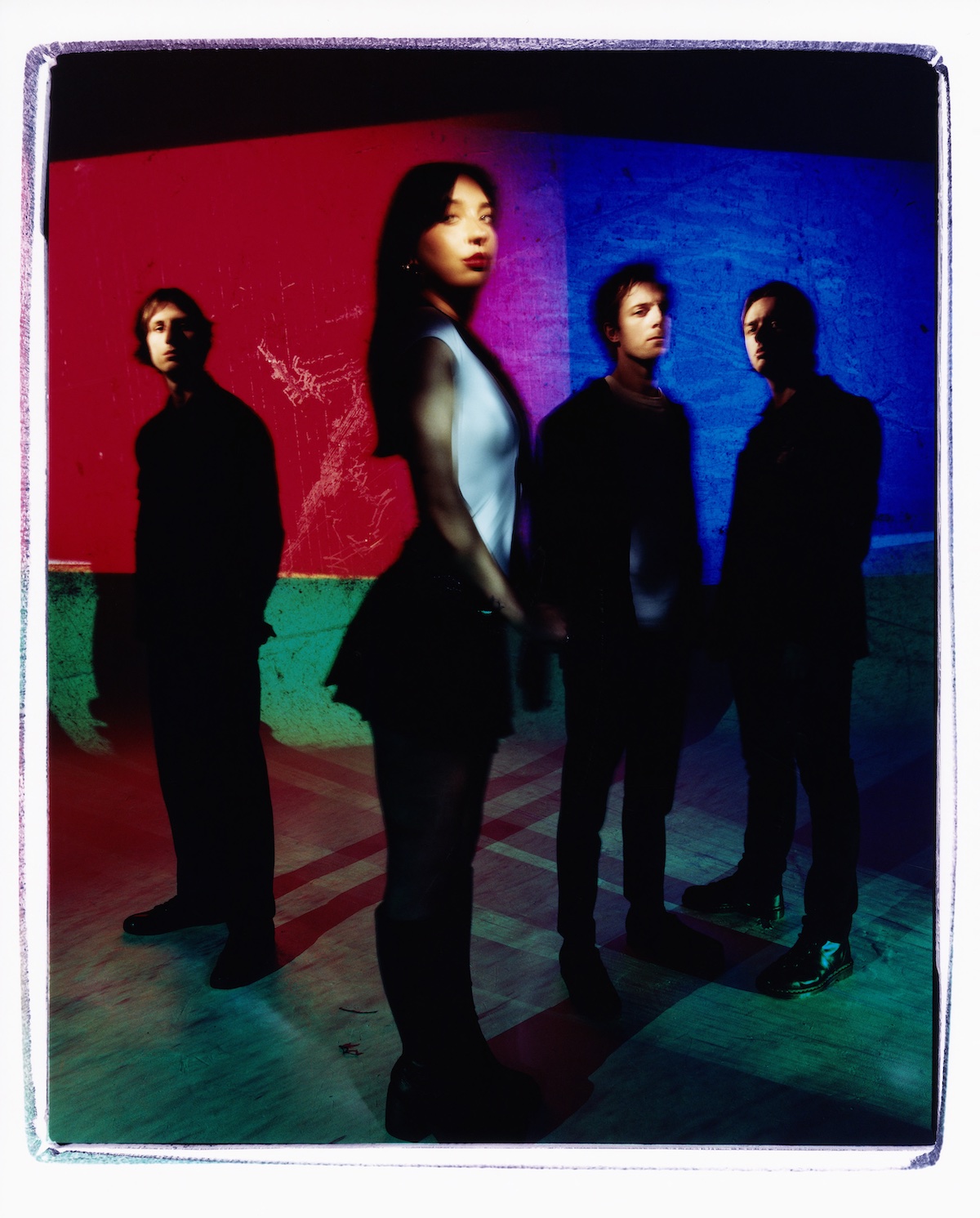
A CONVERSATION WITH THE MYSTERINES
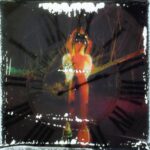
Atwood Magazine: The Mysterines, it’s so great to connect, and thank you all for your time today! How are you all feeling in anticipation of your second album's release?
Paul Crilly: It’s a bit of a mixed bag, to be honest. I think mainly, and I’ve been sat on these songs for a long time, put a lot into them and yeah, there’s a bit in there, but I think all in all it’s just exciting for people to hear the whole album. Think even when you’re bringing out singles, it’s not the same buzz as when you bring a whole record and people can hear the whole thing, you know? So yeah, I’m excited. Dunno about you, Lia, but I’m excited.
Lia Metcalfe: I’m actually, yeah, I’m definitely a lot more excited now for it. I think for a while I think it took me a bit to just kind of wrap my head around the nature of the second record release, I suppose, and like the anticipation, like you said. And I think there’s a sense of kind of like vulnerability at times, when you’re anticipating it coming out. But I think so far with the singles and stuff, it’s been received quite well, and I do think that people are kind of grasping the new reflection of the band. So yeah, I think at this point I just kind of want people to hear it now and we’re really enjoying playing it live. So yeah, it feels like a bit of a buzz around it, which is nice.
I just can't wait for people to listen to “So Long” and the title track, “Afraid of Tomorrows.” They are going to be in for a treat. Your PR team has talked about The Mysterines undergoing a “radical transformation” over the past few years, and I thought that might be a fun place to start. Do you feel like you've undergone a radical transformation since Reeling?
Lia Metcalfe: I think that just kind of naturally happens as you grow up together and you get older and I think anyone who’s changed between like the ages of 19 to where we are now has had some sort of radical transformation, whether it’s emotionally, physically, spiritually. So, yeah, just by complete natural causes I suppose we have.
So this brings us to the new record itself. Can you share a little about the story behind Afraid of Tomorrows?
Lia Metcalfe: We just started writing it after the first record. I can’t really pinpoint when we started writing it, to be honest. Because there’s so much written for it. I think initially when me and Paul started the writing process like that, those early sort of songs which aren’t on the record, kind of like led us to the beginning of writing Afraid of Tomorrows. And I think we didn’t even really realize we were writing it. We were just writing because we wanted to and enjoying it and kind of getting lost in the world of creating this new sound that we felt a lot more relevancy to ourselves. And I think we were just kind of writing a lot and just enjoying the process of that. And it kind of slowly formed this world which is now Afraid of Tomorrows.
Paul Crilly: A lot of it as well was just, was just music as well. I think it was, there was a lot of stuff that we did where we would just come up with musical ideas that we thought were cool and then we’d explore that a little bit. And then I think it was all just getting off because we were very conscious of the fact that we wanted to change the sound. We didn’t want to do a Reeling part two. It took a while just churning out all these ideas to eventually get to play and sing usable songs.
Lia, you just talked about new sounds and the new world that Afraid of Tomorrows inhabits. Can you describe this world for me, and where it’s coming from? How would you describe the world of Reeling, and what do you feel has changed from that first album to this new one?
Lia Metcalfe: I think with ‘Reeling,’ there’s a sense of naivety running through the record, which I think even at the time we kind of knew, but I think was definitely necessary. ‘Reeling’ for me is a lot more like narrative and literal and it’s kind of a bit more like, even like the sounds of it are a bit more literal. It’s like, we all kind of came together and just, like, rocked out.
I think that’s kind of like, do you know what I mean? We were just excited to be in a studio and I think you can kind of hear just like four young kids essentially just doing that and kind of falling in love with all of our kind of inspirations at the time and wanting to kind of emulate them in some ways. So I think that world kind of existed in more of like a undiscovered kind of sense. It’s like we didn’t really know what we were doing, but that’s kind of the humility to it. Like that’s why like, you kind of look back with fondness on it. Whereas I’d say the world of Afraid of Tomorrows is a lot more revised and we kind of, again, like I said before, there’s a lot more relevancy to it for us, I think.
What does that mean? What does Afraid of Tomorrows sound like, for you?
Paul Crilly: I think it’s a lot more raw, I think. The first album, think, ’cause we were, as Lia said, just four kids rocking out, we didn’t kind of think about the, I don’t wanna say we wouldn’t think we, I wouldn’t say we didn’t think about the production much, but we didn’t really know what certain decisions would do, do you know what I mean? Whereas with the new record, the demos were really trashy and quite horrible, really.
I think we kind of wanted to keep that rawness to it, which wasn’t really there with the first record. The first record was a lot more polished and all that kind of stuff. And even like stuff like we, we wrote a lot with drum machines and that kind of thing, we wanted to keep those like the old components in the final version, which we were able to do. So there was loads of things that made it what it was.
Lia Metcalfe: We were just testing and experimenting with loads of different ways to kind of write songs that with writing Reeling and stuff, I suppose it was a bit more straightforward with the guitars and stuff. And I think with Afraid of Tomorrows, the other elements kind of made it its own different beast, really. Like Paul said, it was important for us to keep an almost unfinished, unpolished nature to it because I think that just kind of conveys a lot more, and for me, there’s a lot more said in the things that aren’t with stuff like that, kind of like ‘less is more.’ And I think we discovered that with Reeling, we didn’t really want to overpower people’s ears and stuff. It’s the moments of silence and stillness that have the heaviest weight, really, and that’s something we always kind of kept in the back of our minds while we were writing.
Two things really stand out to me about the new album, this expanded sound that you've been talking about and the sheer vulnerability of the lyrics. To start, one thing that I really love is the actual world The Mysterines’ sound – you’ve gone beyond guitars, bass drums, and vocals. I mentioned “So Long” earlier, that's a Mellotron, isn't it? What was it like working with these additional instruments and incorporating them into your world?
Callum Thompson: I think we just had new stuff to play with, to be honest. We just ended up wanting to kind of broaden our horizons with gear. So we’ve got like different guitars, like bunch of different pedals that were floating around, keyboards, synths and stuff. Like, we kind of like pushed, when we done the first record we just all had kind of one guitar that we stuck to and like a bunch, like the same bunch of pedals that we’ve been using for years. So I think with this time, we’ve obviously been a band for a little bit longer, we’ve amalgamated more toys and more little bits to play with and we kind of just messing around with with them more that kind of leaned into a new sound and also just kinda like not wanting to plug the guitar in and play as fast and as loud as we can. We kind of done that and we got bored of it, really. And I think it can wear you out quite a lot like playing show after show, like kind of rocking out the way we used to. I think we just kind of wanted to… Shouldn’t have written a bit and actually think a little bit more about it all. So yeah.
Lia Metcalfe: I think a lot of the stuff we were listening to as well was a bit more experimental with the instruments and you know, I think we were just listening to a lot more music. I know it’s so vague, but instead of listening to kind of what would make us kind of like go on one in the van, we, I think everything was a bit more like introverted that we were kind of exploring. And the bands and stuff and like the writings and the lyrics and stuff of other people’s music that was a bit more introvert, it kind of became a lot more attractive to us than other stuff that we were listening to around ‘Reeling.’ So I think it was that as well. I think we kind of got, we learned that it’s not all about guitars ’cause a lot of our favorite bands don’t just use them and yeah, we just started exploring.
So is it a Mellotron or is it a keyboard, what is responsible for “So Long”? Who played that?
Paul Crilly: It was a Mellotron sound, but it wasn’t an actual Mellotron, unfortunately.
Callum Thompson: It’s like the Mellotron patch on Logic.
Paul Crilly: It was a happy accident that Lia and me were actually working on a different song. And it wasn’t that it wasn’t working, but we just didn’t really know what to do with it. And we were just like, oh f*, let’s see if the Mellotron will work. And then…
Lia Metcalfe: Paul started playing it in the other room, like playing the “So Long” riff, the opening riff. And I think I was in the kitchen making a tea or something, I don’t know, writing maybe. And then I came in and was like, what’s that?
Paul Crilly: Yeah, so it kind of came out of nowhere, that’s what it, I don’t know. It was the last song we wrote for the album. Yeah. And go for the Mellotron.
It's one of my favorites. I never thought that I would say The Mysterines reminded me of a Beatles song. Obviously, there's some similarities with that and “Strawberry Fields.” But obviously the lyrics on that song too – Lia, you sing, “nobody's easy to love,” and that just shook me to the core.
Lia Metcalfe: Oh, yeah. It’s a very honest song, lyrically. And I think it kind of just, like, I don’t know, fell out in a way. When me and Paul went to do that last demo session, I think I was kind of in a bit of a weird headspace. And I think it was kind of like, when you’re like so close knit as a band, it doesn’t just affect you, it affects everyone because you’re spending so much time together. And I was kind of aware of that and trying to not let that have a domino effect on what we were doing. And I think with a song like “So Long,” it kind of just… I think I just wrote exactly how I felt for the first time properly without having any sort of metaphors and f*ing crazy imagery and surrealism. It was just very point blank how I felt. And yeah, that’s it really.
Paul Crilly: Because we’ve been playing that song live a bit and people seem to be liking it. I think that’s why, because the lyrics are so… The simplicity of it is why it connects with people, isn’t it? Because it’s like every line you can kind of relate to in a way. I think that’s why I love that song. It’s like you can do all you want with your fancy Mellotrons and all that kind of shit, but it’s the words that will connect with people.
That's absolutely one of my favorite songs on the album, but it's not the only time that you expand your sound beyond what we heard in Reeling. These songs, they’re somehow heavy but light at the same time. If Reeling was a little bit more like a one-pot soup, this is like a 12-course meal.
Callum Thompson: That’s amazing, that. I might be using that myself.
Paul Crilly: That was like the tagline on the billboard.
Lia Metcalfe: You’ve come on to the PR team.
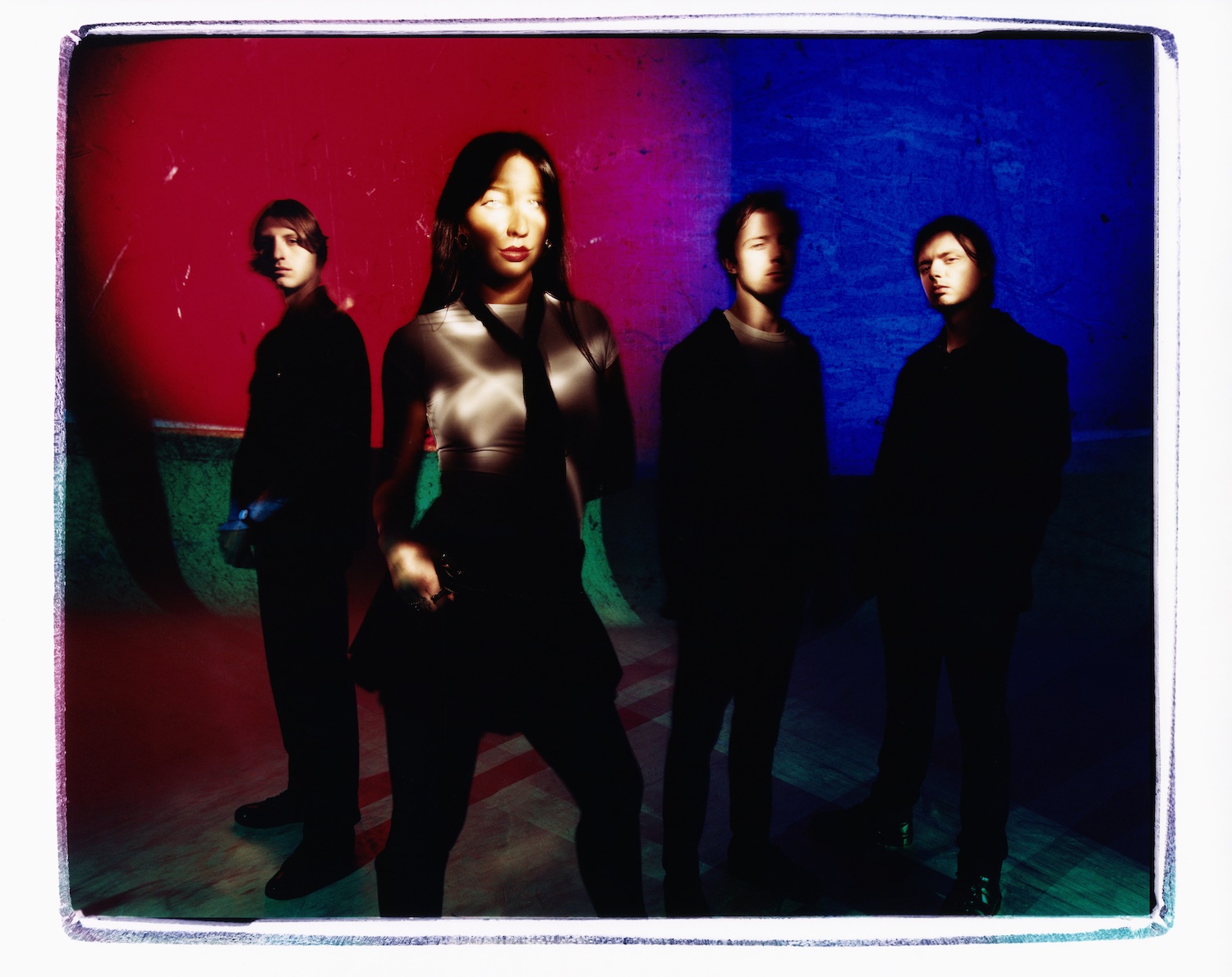
Happy to be here! The other thing I want to talk about is the vulnerability. Lia, you said that the album is a mirror where you find you're nothing more than a formless being, a collection of traumas, old and new, mistakes, addiction, fear, happiness, loneliness, etc. I’d love to talk about that a little bit and the headspace you were in, in making these tracks.
Lia Metcalfe: I suppose the best way to put it is that I was in a very, very vulnerable place when writing the record, and felt almost pretty lost in a way. But I found that writing the record, lyrically, was a way to discover what was happening internally and figure out how to deal with that externally. It was a scary process, the writing part, because I would often scare myself into what I was writing or saying. And that’s why there’s lots of themes of paranoia throughout the record – the songs at one point almost felt quite haunted to me. They kind of felt like mini ghosts. I think I lost myself a lot in the world of the record, so much so that I kind of became it.
So all these themes that I’m talking about, like being obsessed with the perception of time and it being bent and then thrown back at you, and losing time, and then paranoia and grief and loss and stuff, all became exactly what was my internal world, and I couldn’t quite figure out whether it was a reflection of it or if I’d created it and I’d became it. So it was almost a bit like Alice falling down the rabbit hole or something. I think it was quite difficult to write sometimes, at least with the vulnerability of it. But there was no other way to write at that point; it wasn’t like I sat down and was like, “I’m gonna be more vulnerable and I’m gonna be more personal.” That is just what happened, and it kind of suited the choices we’d made musically, too. Now I’m at a place where it’s almost become a time capsule for what was, and it’s not like these things are connected to me anymore. They’re in the world of Afraid of Tomorrows, and that’s where they’ll stay.
When you're singing these songs – some of the lines are so intimate, am I unlovable being alone and just getting lost in kind of your own time warp. Do you need a palate cleanse afterwards? Do you do anything to get out of that world to remind yourself that these are songs, that ‘this is not my whole identity’?
Lia Metcalfe: I think when we went to record the record, I struggled with that a lot. Like because you’re putting so much into it and you care about it so much. Everyone does. I felt like the only way to kind of to do it appropriately was to kind of become it again, which was really tough. And it kind of, it’s almost like you put yourself back in that place, not on purpose, but just by default. But now I think performing and for me is a lot more cathartic than performing ever has been because, more honest, and I can kind of feel things without being too spiritual and holistic about it. I can kind of like, it’s almost like a huge sense of relief and release that these aren’t just things that help me. Now they’re for people to help themselves with.
And like Paul said, like when people stop and listen to “So Long,” that’s just such a great moment already. And a pretty overwhelming one emotionally. And I’m pretty sensitive, like person, so it does get me. But I think you’ve gotta be able to get yourself before you get other people. Like, if you can make yourself feel that way, then you know you’re gonna have that effect because it’s honest and people want honesty. So I enjoy playing them, to be honest. I’m not really, it’s not like I’m going back to the person who wrote them. It’s kind of like there is a separation though, which is good.
My favorite lyric is, “Why don't you just let the light in? I've been waiting so long that I've become a stranger,” from “Inside a Matchbox.” Could you share a little bit about that song?
Lia Metcalfe: Paul kind of played that riff. I thought initially it sounded quite Beatlesy. I think I remember saying that, kind of reminded me of like, something off “Rubber Soul” or maybe it was just the way we were doing it at the time ’cause it was on the acoustic. And I think imagery for this record has been like a huge part of the writing process. Like, instead of kind of depicting how I feel through narrative story and like characters and stuff, it’s been more about depicting an image to provoke someone into a certain feeling to then convey how, what the emotion is.
So like, the idea of like something being trapped inside a matchbox is like, kind of like claustrophobic, but there’s almost something quite ethereal and beautiful about it. ‘Cause like, it’s kind of small and yeah. Like, it’s, yeah, untouched in a way. And it’s almost, I think like the, it’s almost like they want to be in a matchbox, do you know what I mean? And they’re kind of like waiting to be let out, but they don’t mind being stuck there. Yeah, I loved doing that song. I think imagery wise, that’s kind of one that is quite provocative, I suppose. And it kind of says a lot without saying too much, I think.
It's my other favorite. You start the album in this familiar place that we know from Reeling, and then the deeper we listen, the more you expand your sound to the point where sometimes it feels like it's a brand new side of you by the time we get to those last songs. So you have this gradual slide into a complete transformation. I want to talk about the journey of the album and get a sense for your own thoughts, opening with “Last Dance” and “Stray,” was there a method to that madness?
Paul Crilly: I don’t know. I think there was a lot of back and forth on the track list, I think it took a while to piece it all together purely because of the reason, like you’ve said, where there’s some songs that are kind of familiar to what ‘Reeling’ was, but a bit different. But then also there’s this complete like, songs that are in a completely different world. So trying to piece that all together took a while. But I think I don’t know whether it was a purposeful trying to like let people through gently with it. I think “The Last Dance” kind of just felt like a good opener. And then “Afraid of Tomorrows,” even when we wrote that song, we knew that was gonna finish it. I think the fact that it’s just two vocals and the acoustic guitar kind of meant that it shouldn’t really be an album closer, which is exactly why we wanted to do it.
Lia Metcalfe: “Last Dance” was the opening as well after we wrote it, ’cause we didn’t write that one quite early, really. It was almost like the third writing trip, I think. And then I think once we had that, Paul had that riff, we kind of knew it would be like a good opener. We kind of had the opener and the closer, and then the in-between was just kind of fell together. And I remember John Congleton being like, you want to kind of take people on like a, on a journey. And I suppose we’d never really thought too much about like, the conviction of that before. Yeah. But I think we got there in the end.
One of my other favorite songs is “Jesse You're a Superstar.” I can only imagine what it'll be like to have the crowds chanting, there is something in this moment, I can feel it, like breathe it back at you together. It feels like a mantra, the chorus is this very spiritual release. Could you mind sharing a little bit about that track?
Lia Metcalfe: The title came from a video, Paul’s nephew. So Paul’s sister had another baby called Jesse. And Paul’s other nephew was like holding Jesse. And I mean, I feel like Paul should tell this story. [laughs]
Paul Crilly: It’s a well-known story with the band – Bobby, me nephew, was holding Jesse, and there’s a video of him and he just says, “Oh, Jesse you’re a superstar.” And I remember showing Lia and I thought it sounded like a Sonic Youth song or something like the title. So there was actually like, that title just was kind of milling around before the song. And then I had this kind of like, it was probably about a minute’s worth of music and we would, I remember we were in America and I showed Lia it and she liked it. And I think that just kind of became “Jesse You’re a Superstar,” and it just went from there, really. So it was the, I think it’s the only song where it’s been, there’s been a title before, as a song, you know. But yeah, it’s nice. It’s got like a nice… I don’t know how much it’s about Jesse, but it’s still got, I don’t know, it’s just that I really love that song. It’s got a, it was a proper like, took a while for it to all come together. But yeah, that’s the story behind it.
I really like that. That's awesome. And then so you took that idea and just built this collective, transcendent experience.
Lia Metcalfe: We kind of feel that when we perform it live, to be honest. I think it was one that I kind of felt pretty, I don’t know, like it was all almost in a way the hardest one to write because of like, the inspirations around the song. And I felt like I wanted to convey what I was saying well, and I kind of kept writing like loads of different lyrics for it. And it just wasn’t really like landing. And it was, I felt like, I think I ended up just going back to like the simplest thing said really kind of, similar to “So Long” in a way. It’s pretty simple. And I feel like that song has a lot of, like, all the inspiration for it emotionally is all real life stuff. Like, it’s all, there’s a lot of emotion injected in it. Like it started off being inspired by one thing. And then it kind of changed to something else. And then especially when we went to record it, it changed again. So there’s, it’s kind of like this big like hall of mirrors of like, I don’t know, emotion with this song. And I think especially live, we love playing that song. We all kind of, it feels like this big kind of wave comes over us in a way, which is like…
Paul Crilly: It’s another song where it’s like musically, especially, it’s so simple. Think a long time ago, I don’t think we would’ve felt comfortable with it because it’s… Everyone’s kind of playing the bare minimum. You know what I mean? The same three chords the whole way through with very little happen to it as it goes on. I think that’s why it kind of, whenever we play it live it has this like natural crescendo and I think that’s just purely ’cause it’s just like, everyone just is like, sat on it and then it just, I don’t know, it just feels great whenever we’re playing that song live.
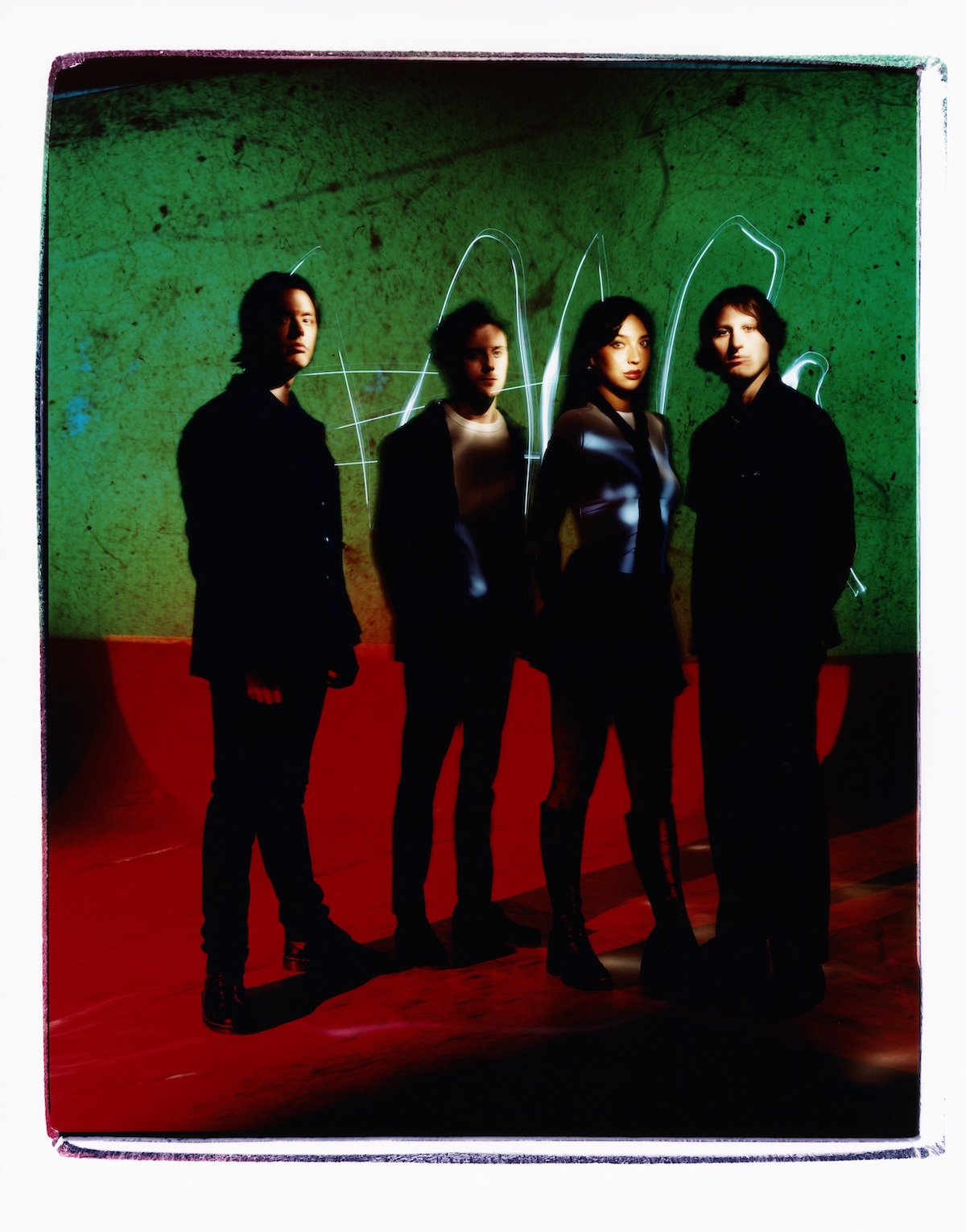
That's awesome. I mean, listen, I could talk your heads up all day about my favorite tracks and my favorite moments. There's the end of “Hawkmoon” where everything just goes bonkers. I already mentioned the title track which just feels so soothing and unsettling all at once. I'd love to hear from the three of you, what are some of your favorite moments, favorite songs on this record? What do you really hope people listen to and really take in?
Callum Thompson: I just hope people understand that we’ve undergo a change and that we’re not the same 19, 20 year old that we were when we done ‘Reeling’ and kind of see like a journey that we’re only still starting, but kind of have a bit of an idea as to where we wanna go and it’s not gonna be heavier or more of the same all the time. I think that like, I’d like to see, I think that people kind of get the perception that, oh, like whenever the The Mysterines come with a new record, it’s gonna be something a bit different to what we’ve heard already. Maybe there’s like similar lineage, but it’s different and it’s dressed up differently.
Callum Thompson: I’d like to just talk a little bit more seriously than a young kind of, Paul saying it’s a funky rock band or whatever everyone kind of thinks we are ’cause although there’s some kind of more different shades of even it kind of is all kind of the one world. And I think with this one, we just kind of thought it out a little bit more. We’re older now, so the things that happen when you become older anyway have kind of affected it all. Yeah. And just a bit more, I dunno, we’ve thought about it all a lot more I think this time. And we’ll be doing that again when we do another one.
Paul Crilly: Yeah. I agree.
I like that a lot. So do you have any favorite tracks?
Paul Crilly: The ones that we mentioned “So Long” is a… Was a big one for me. I’m like really proud of that song. I’m proud of all them. But that song, I think we played it for the first time properly the other day and it just, it kind of like made me feel the exact same way that it did when we wrote it, which was probably nearing a year ago now, which is such a great feeling. I love “Hawkmoon” purely because I think, correct me if I’m wrong, Lia, I think that was the first one that we wrote for the album that actually made it on the album.
Lia Metcalfe: It was.
Paul Crilly: So I think that kind of reminds me of like, I think when you think about it that way, it’s the first song from the new album, but then when you compare it to ‘Reeling,’ it’s just world apart, I think that just kind shows how, like, how much we just wanted to just throw all that out the window and just try something completely new. And also the ending is completely ridiculous, which is what I love as well.
Callum Thompson: Yeah, the end of “Hawkmoon” is one of my favorites. It’s like almost quite Hans Zimmer-y I think, and I think that was kind of the song we wanted to lean into, made that kind of cinematic. And John helped us articulate that well, and he was amazing and kind of helping us find them too. But I’d say the end of “Hawkmoon” is good. And I couldn’t agree more with everything that Paul said about “So Long” with kind of like, like a new bear for us to be playing stuff like that, especially live ’cause I guess for people that haven’t heard the record or don’t really know, haven’t heard anything of the newer stuff, it’s kind of like a complete difference. So yeah.
Lia Metcalfe: Yeah. I love “Hawkmoon” as well. I feel like what Paul said with like, it being the first song that was written for the record that actually made the record on the first writing trip, and it is kind of like worlds apart from ‘Reeling.’ I think it just kind of shows that sense of like escapism, which is like throughout the record, like you we’re trying to get away from something all the time. And escapism is a huge theme as well. I love “Tired Animal.” I think that’s just, I think that’s kind of the song where we’ve like nailed the musicality of it and like the imagery, kind of just one big thing. And it’s just like such a… Almost like harrowing song because it was like about like a recurring dream that I had. And to get that down on paper and put it with music was such a huge moment. And I think I just remember writing it with Paul in this horrible practice room that we were in for a bit. And I think in a weird way, it kind of felt like the environment had been absorbed into what became a song because it was just such a weird practice room we were in. So, yeah, and I’m really enjoying playing that live too. I think it’s pretty interesting for people to hear.
Do you have any favorite lyric?
Lia Metcalfe: In the opening lines, “Afraid of Tomorrows” is one that I kind of enjoy. I think it kind of summarizes a lot for what the song, what the album’s about. Yeah, I like the opening lines of “Afraid of Tomorrows.”
I wish I had eyes
Of a frightened child
So someone would
Cover them for me
I’m so afraid of tomorrows
So at night I drink
Underneath a kitchen sink
And make sketches of wild horses
With rusted nails that I found
Upon the tiles
Is where I cry to the dead snails
I’m so afraid of tomorrows
Speaking of, you know now that we've kind of, we're coming to the kind of the end of this conversation about this album. What does the title Afraid of Tomorrows mean for you? What is the symbolism as the name of this record?
Lia Metcalfe: There’s lots of themes of paranoia in the record, and a lot of paranoia went into the record, especially the writing process lyrically and also the matching up with the theme of time throughout the record. Like the constant recurring image of the clock and the perception of time constantly being bent and how that meets up with paranoia and fear… I think fear is such a strong emotion throughout the record. Fear is almost as large, if not larger than the feeling of love in a way. They’re almost like the opposite of each other, and they’re kind of at this constant to and fro. So I think it’s probably the simplest way to summarize how I felt when writing, or around the time of writing the record was there was a lot of fear about not just tomorrow, but time in general, and it kind of just felt right to say it out loud, “Afraid of tomorrows,” because I was!
You've spoken so much here and there about what you hope listeners take away. I know you want people to recognize you're not the same band we used to know, that you really have undergone this radical transformation that we talked about earlier. What about your own takeaways? What have you taken away from creating this record and now putting it out?
Paul Crilly: I feel like we had a lot more confidence, and I think being in a band, especially in this world, it’s hard to make difficult decisions in terms of… It’d be very easy to kind of write songs that people will sing everywhere too, and write those choruses that all the festival crowds would love. I think it took us a while to realize that I don’t think we are that band, or will ever be that band. I think we’re quite a bit more confident about us and are willing to make more tough decisions musically that cater to what we wanna be as a band. And I think that will be, however many albums we will write, who knows, but I think we will always make music that we wanna make and we will always be the band that we want to be, and not cater to the masses.
Lia Metcalfe: I agree.

In the interest of paying it forward, who would you recommend to our readers?
Lia Metcalfe: It’s our favorite question, when we get to speak about other people!
Paul Crilly: I’m gonna go for Astles. I’ve got a friend called Dan Astles, and he’s a great, but he’s also a great songwriter and feel like everything he’s bringing out is just getting better and better. Yeah, he should be taking over the world. So yeah, Astles. That’s my suggestion.
Callum Thompson: I got asked this recently and I always like come up with kind of like the usuals and then I thought, why have I never mentioned Adrianne Lenker? And I honestly think like the world becomes a more understandable and just an overall better place whenever she releases music. I think her records can kind of transcend people’s feelings in a way that no other writer has been able to do for many years. And I genuinely believe that like when Big Thief or Adrianne puts music out herself, the world does kind of become a better place. And so I think for anyone, even whether they like the music or not, I think to listen to one of their records or the records of what she’s done with Big Thief is like a big thing. And I think she’s like a massive inspiration, not only for us and not even only for musicians, but for just people around the world. I know that sounds a bit like… I don’t want to sound like a hippie or nothing, but I do think it is important to listen to her music and what she has to say and her take on things because it is amazing.
Lia Metcalfe: I agree with Cal with that as well, but I’m going to pick some other people. Divorce are good. I think they’re great. There’s a band called Feeble Little Horse, which are really cool as well. There’s a new folk kind of singer from, I think he’s from New York called Arsun. And I really like him. I think he’s boss. There was someone else. Let me check my Spotify again. I like, we love Mannequin Pussy actually. I think they don’t get enough attention.
And I like Unsung – all their stuff is great. And they just did their last record with John Congleton as well. And I kept like pestering them when it was out because I’d heard like the first singles and like loved it, they’re boss. And we love Wunderhorse – we’ve loved them for ages too.
Callum Thompson: There’s actually loads of good stuff happening at the minute. It’s quite an exciting time. And I think like the more good stuff, the more everyone kind of ups the game and cracks on. It’s kind of like, I think if everything in the rounds is crap, it’s kind of like hard to… It’s hard to kind of break through and doing something different. So that I really do think outside of loads of landfill that does go on, there is really good alternative stuff happening at the minute, which I think is important for all alternative bands, good or bad.
— —
:: stream/purchase Afraid of Tomorrows here ::
:: connect with The Mysterines here ::
— — — —

Connect to The Mysterines on
Facebook, Twitter, TikTok, Instagram
Discover new music on Atwood Magazine
© Steve Gullick
Afraid of Tomorrows
an album by The Mysterines


 © Steve Gullick
© Steve Gullick